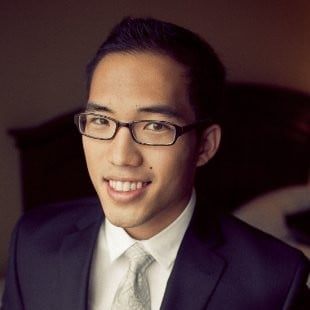Last Updated on August 8, 2022 by Laura Turner
The MCAT looms large on the horizon of many would-be medical students – and there is a lot of anxiety over choosing preparation courses and books and in finding different ways to achieve the highest score possible. And there is a good reason for this – a poor or mediocre MCAT score can close the doors of many medical schools.
For students who are minorities and/or coming from disadvantaged backgrounds, however, the MCAT can seem even more intimidating. Part of this is that students from underserved communities can lack the study skills and strong science background that is needed to do well on this test. There is also the cost of preparatory courses and testing fees that can act as a barrier to students’ ambitions to become a doctor if they are coming from a low-income background.
This article covers why increasing diversity in medicine is important – and what the AAMC and individual medical schools are doing to help remove the MCAT as a barrier to students from a minority and/or underserved background.
The AAMC Reports on Diversity in Medicine
The AAMC has dedicated much research to the issue of minorities in medical school and in medical practice. According to their latest studies, only 8.9% of currently practicing physicians are from a traditionally underrepresented minority group (this breaks down to 4.1% African American, 4.4% Hispanic, and 0.4% American Indian). Also, it is important to note that the majority of minority students matriculate from only a few medical schools. For instance, the AAMC notes that the majority of black doctors train at Howard or Meharry (historically black schools), while the majority of Hispanic doctors are coming from the University of Puerto Rico, Universidad Centrale de Caribe and Ponce. The AAMC has a number of programs to help turn these numbers around and graduate a new generation of doctors who more closely mirror the population they are serving. Furthermore, the AAMC notes that this lack of representation among health care professionals can translate into a lack of access for many different populations. Their research has found that patients in rural or isolated areas are less likely to receive preventative care to help avoid the onset of serious chronic conditions like cancer, while members of ethnic and racial minorities still suffer from lack of access to care and consequently have poorer health outcomes than their white counterparts.
Why is this important? Shirley McGinn in her article, “Finding Students Who Will Serve the Underserved” notes that reducing disparities in healthcare access in this country remains a priority – and a challenge. However, many researchers believe that efforts to recruit physicians to practice in underserved areas could be more successful if more physicians were taken from these underserved backgrounds. This is one of the reasons why both the AAMC and medical schools around the country are focusing on ways to increase minority and underserved presence in their programs. One of the ways to do this is to give such students the preparation they need to take the MCAT – and to make it financially feasible for them to do so.
Opportunities for Minorities and the MCAT: The AAMC Takes Action
Research like that mentioned above has prompted the AAMC to launch a concerted campaign to change the face of American medicine and to increase diversity among a new generation of student doctors. Because of the enormous importance of the MCAT for admission to graduate school, some of this effort has gone to preparing underserved students to succeed on this test.
The Fee Assistance Program
One of the biggest barriers between minority/underserved students and medical school is the amount of money involved in preparing and taking the MCAT and then applying to the schools themselves. Students who are eligible for the income-based Fee Assistance Program, however, are eligible for reduced MCAT fees and receive the official guide to the MCAT along with other official preparatory materials for free. Students in this program are also eligible for the medical or other evaluations needed to apply for accommodations while taking the MCAT, which can be extremely helpful for students with special needs.
The MED-MAR
Minority students who are in the process of registering for the MCAT are able to sign up for another AAMC program that can help them on their path to medical school: the Medical Minority Applicant Registry, or MED-MAR. This is open to students who identify as belonging to a traditionally underrepresented group and, once registered, a student’s basic biographical and academic information will be sent to minority affairs and admissions offices of participating schools; emphasis is placed on recruiting African American, Native American/Native Alaskan, Hispanic and Native Hawaiian/Pacific Islander students.
Opportunities for Minorities and the MCAT: a Look at the Efforts of Medical Schools around the Country
While the efforts of the AAMC are significant, they are not the only ones that are making efforts to help increase cultural diversity in medicine. Medical schools across the country have opened their own individual programs to help prepare students from minority/underserved backgrounds to prepare for the MCAT and to bolster up the science and study skills that students need to achieve success in their medical training.
Southern Illinois University: Medical/Dental Education Preparation Program (MEDPREP)
No conversation on this topic would be complete without a discussion of the MEDPREP program designed by the Southern Illinois University School of Medicine. It is one of the oldest of its kind in the country and began in the 1970s, bringing in African American, Mexican American, Puerto Rican, American Indian, and women students as well as those from a low-income and/or rural background and veterans with previous medical experience.
The application process is lengthy and students are required to submit transcripts, letters of recommendation and must go through a battery of tests and interviews in order to be accepted into this program. Once students have been admitted, the hard work really begins: this two-year program is broken down into a first-year which emphasizes basic science courses along with the problem solving and test-taking skills that are needed for the MCAT, and this is followed by a year of more advanced science courses.
This program owes its significant success to a combination of a low ratio between teachers and students, an overall small class size, and a lot of individual attention that helps students to assess themselves and constantly improve their academic skills. Students participate in MCAT test-taking practice and lessons in completing applications, giving interviews, and writing personal statements. This program boasts that around 71% of their students go on to matriculate to medical school.
Northeast Regional Alliance: Health Careers Opportunity Program
Some medical schools, rather than going it alone to help increase diversity, have teamed up to accomplish this sometimes daunting task. A great example of this is the Northeast Regional Alliance – a partnership between New York’s Mt. Sinai and Columbia Medical Schools and New Jersey’s Rutgers School of Medicine, working with the Manhattan-Staten Island Health Education Center and Hofstra University. This partnership offers the Health Careers Opportunities Program to foster underserved students on their journey to medical school.
This program is open to sophomores in the New York/New Jersey area who come from minority or underserved backgrounds and who are able to commit to this rigorous three-summer course, which waives application fees and offers stipends to cover expenses. Students attend courses at Rutgers, Columbia, and Hofstra and receive intensive tutoring, mentoring, and academic counseling in order to prepare for taking the MCAT and for being successful once they matriculate to medical school. Cultural competency is heavily emphasized in this program.
Wayne State: The MCAT Summer Workshop
Wayne State’s Schools of Medicine Office of Admissions, Diversity, and Inclusion has developed the MCAT Summer workshop as part of its long-term commitment to increasing diversity in the medical workforce. Students who are accepted to this free program undergo an intensive 12-week preparatory session based on the Meyerhoff Scholars Program from the University of Maryland. The session includes a variety of lectures, study and discussions groups, and practice activities that relate to specific subsections of the tests and that greatly enhance the student’s chances for MCAT success. This program not only helps to increase the diversity of medical students but acts as a powerful recruiting tool for the Wayne State Program.
While the length and structure of these programs vary widely, medical schools across America have designed them with one goal in mind: to help minority students to prepare adequately for the MCAT and to hone the academic skills and scientific knowledge they need to achieve success in medical school.
To sum up, minority presence in medical school and in medical practice in America still lags behind the demographic realities of the U.S. population as a whole. The efforts of both the AAMC and individual medical schools around the country, to prepare students from minority and/or underserved backgrounds, however, are trying to remove the barriers (both academic and monetary) that stand between these students and achievement on the MCAT, without which entrance to medical school is simply not possible.
*Test Prep Week 2016 was happening*
Visit the Exhibition Forums to check out some excellent test prep products and services, take advantage of exclusive SDN member discounts, and enter to win free stuff!
Brian Wu, MD, Ph.D., MNM, graduated from the University of Maryland with a Bachelor’s of Science in Physiology and Neurobiology, and graduated from the Keck School of Medicine (University of Southern California) with an MD with a focus on holistic care and treatment. He currently holds a Ph.D. in integrative biology and disease for his research in exercise physiology and rehabilitation.


